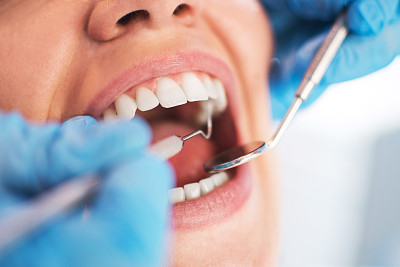Understanding the Process and Recovery After Extracting a Tooth for Improved Oral Health and Comfort
Summary: Understanding the process of tooth extraction and the subsequent recovery is vital for maintaining oral health and comfort. This article delves into four key aspects of the tooth extraction journey: the reasons for extraction, the procedure itself, post-operative care, and the psychological impact on patients. By comprehensively exploring each of these areas, we aim to provide insights that prepare individuals not just for the extraction, but also for a smoother recovery phase. A thorough understanding enables patients to take proactive measures associated with oral health, ensuring that they are well informed and comfortable every step of the way.
1. Reasons for Tooth Extraction Explained

Tooth extraction is often deemed necessary due to a variety of dental issues. One of the primary reasons is severe tooth decay that cannot be repaired with conventional methods like fillings or crowns. When the damage to the tooth is extensive, extraction may become the most viable option for maintaining overall oral health.
Another common reason for extraction is periodontal disease, which is an infection of the gums that can lead to tooth loosening. In such cases, removing the affected tooth can prevent further damage to surrounding teeth and soft tissues, promoting a healthier mouth.
In some situations, teeth may be extracted to facilitate orthodontic treatment. This is generally done when overcrowding prevents proper alignment, making room for other teeth to move into a better position.
2. The Tooth Extraction Procedure Explained
Tooth extraction procedures can vary depending on complexity, but generally, they begin with a thorough examination by a dentist or oral surgeon. X-rays are often taken to assess the positioning of the tooth, which helps in planning the extraction process.
During the extraction, the patient is typically given local anesthesia to numb the area around the tooth, ensuring comfort. For patients who experience anxiety, sedation options may also be available. Once numb, the dentist carefully loosens the tooth and removes it from its socket.
Afterward, proper care is taken to ensure that any bleeding is controlled, and the site of extraction is closed with stitches if necessary. The entire process usually takes less than an hour, allowing patients to head home with instructions for proper aftercare.
3. Post-Operative Care for Comfort and Recovery
Post-operative care is crucial for a smooth recovery after tooth extraction. Patients are advised to follow specific guidelines, starting with resting for at least 24 hours after the procedure. Avoiding strenuous activities and keeping the head elevated can help reduce swelling.
Diet also plays a significant role in recovery. Patients are encouraged to stick to a soft-food diet, consisting of items like yogurt, mashed potatoes, and smoothies, for the first few days post-extraction. Staying hydrated is essential, but patients should be cautious to avoid using straws, as this action can disrupt the healing process.
Additionally, following proper oral hygiene practices is vital. Gentle rinsing with salt water can help keep the extraction site clean. However, vigorous brushing around the area should be avoided until healing is well underway, usually after a week.
4. Psychological Impact on Patients Dealing with Tooth Extraction
The act of having a tooth extracted can induce anxiety in many patients. Fears associated with pain, infection, or complications during recovery are common. Understanding the process can alleviate some of these fears, helping patients feel more in control.
Support from friends and family during the recovery phase can also significantly impact a patient’s mental state. Open communication about any discomfort and reassurance can enhance emotional well-being during this time.
Furthermore, utilizing relaxation techniques, such as deep breathing exercises or mindfulness, can assist in managing anxiety. A positive mindset can contribute to a more comfortable recovery, allowing for better adherence to post-operative care.
Summary:
Tooth extraction is not just about the procedure; it encompasses a journey that includes understanding the reasons behind the extraction, the process itself, effective post-operative care, and addressing the psychological aspects. With a comprehensive approach to tooth extraction and recovery, patients can significantly enhance their oral health and comfort during this challenging time.
This article is compiled by Vickong Dental and the content is for reference only.



